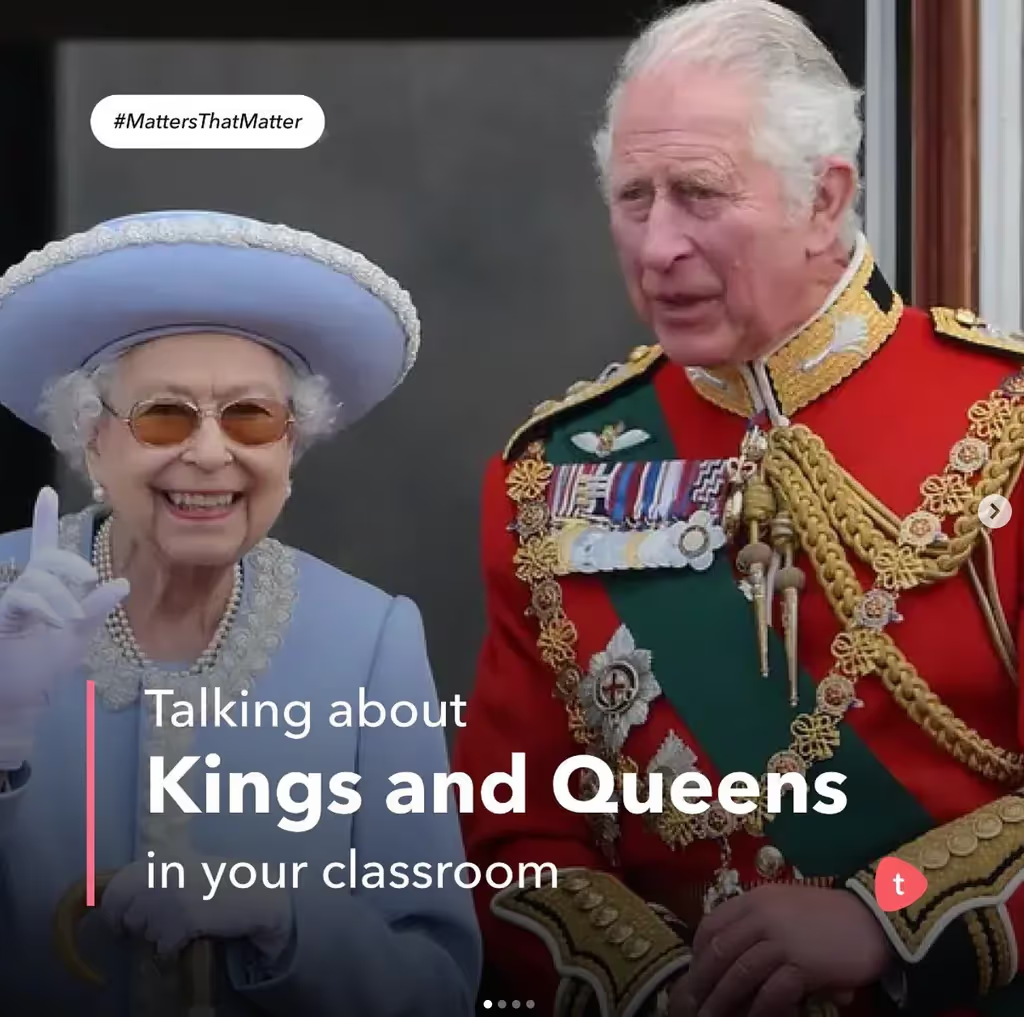
.avif)





.avif)
"Free speech is the bedrock of a healthy society, but how do we deal with the torrents of horrible ideas it has unleashed?" - Salman Rushdie 📚✍️This time on #MattersThatMatter, we're talking freely about free speech. 📣🗨️ Remember when TikTok was on the verge of being banned in the USA? Yep, that's when the free speech debate got a whole lot more interesting. But, as much as we love to exercise our right to express ourselves, it's crucial to understand its limitations too. 🤐📚Here's an idea: why not spark some open discussions in your classroom about past and present events that stirred up free-speech controversies? It's a fantastic way to help your students understand their rights and responsibilities as citizens in a democratic society. 🌏👥Just remember to strike a careful balance between promoting free expression and encouraging critical thinking. After all, it's a complex issue, and we want to make sure our students can navigate it confidently! 🧭✨
As we encourage our students to develop their own voice and choice, a great way of provoking thought is by talking about scenarios that unfold in the real-world. This includes topics from global warming to women's rights to representation. As the world saw the election of Rishi Sunak as the Prime Minister of England, conversations about fair and diverse representation of people resurfaced in popular media. This reminded us of instances when political leaders were chosen and elected in important public offices across the world, and what that means in the realm of public policymaking. Use our suggested activities as conversation starters with your students. Ask them what they think about diverse representation in politics and how this impacts them personally.




What do boys think about being boys?It has never been more important to deconstruct definitions of masculinity as they manifest in our society and our lives. Toxic masculinity is not just a men’s issue - it impacts everyone, including girls and women. As a term, it is tricky and often misunderstood as a vilification of boys, men or any of the particular qualities society has deemed “masculine.” But our classrooms are rife with opportunities to encourage students to question how everyone contributes to a culture of toxic masculinity. As educators, we can spark dialogue to help young minds reconstruct a more positive model of masculinity that makes room for all individuals to feel secure in their masculine identity. Here are a few suggestions to help you get started. Note to teachers: We recognise that this is a sensitive topic. Some of the readings, discussion questions or activities may not be suitable for your students or for your context. In the same breath, we recognise that this is an important conversation to have. We hope what we have suggested is useful, but we also hope you'll tell how how this can be done better, or how you'd approach this differently, in the comments.
With the passing of Queen Elizabeth II, discussions about monarchical governance have flared up in the news, in public debates, and on social media. As we think about the role played by monarchs across the world, we find ourselves asking an important question- do monarchies have a valuable role to play in today's day and age or are they just vestiges of the past? As we continue to ponder over the real contribution of modern monarchy, we encourage you to open classroom discussions with students that can help them develop their own perspectives about kings and queens of the world. Don't forget to share their key learnings with us!